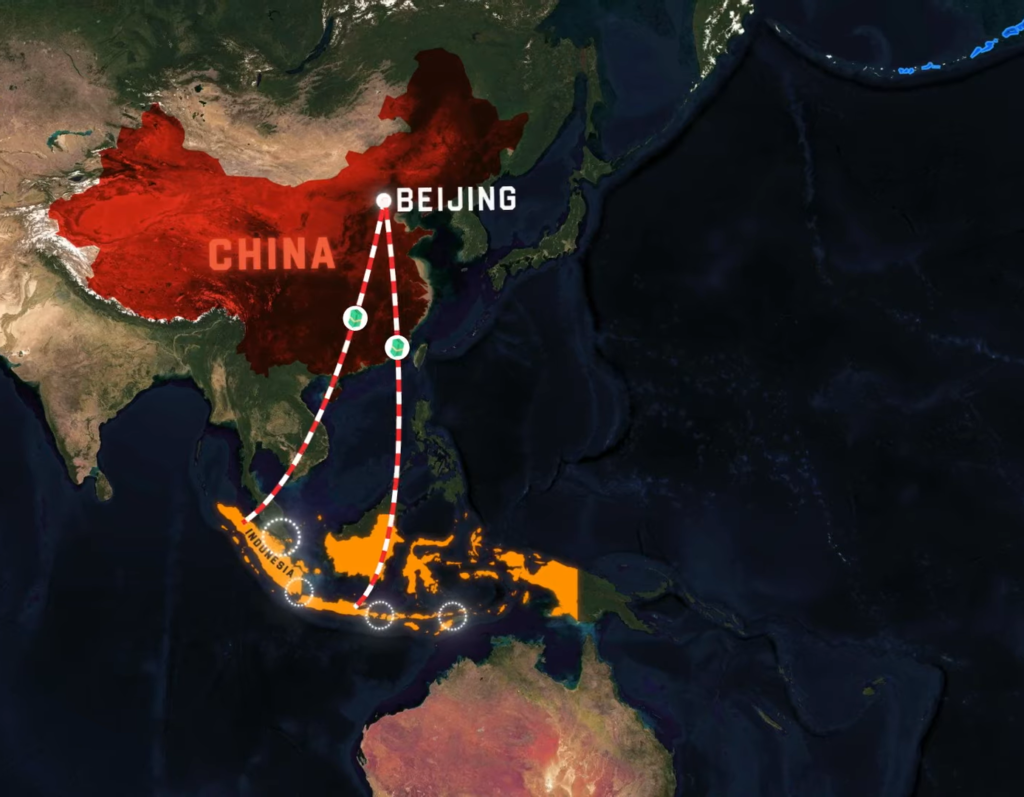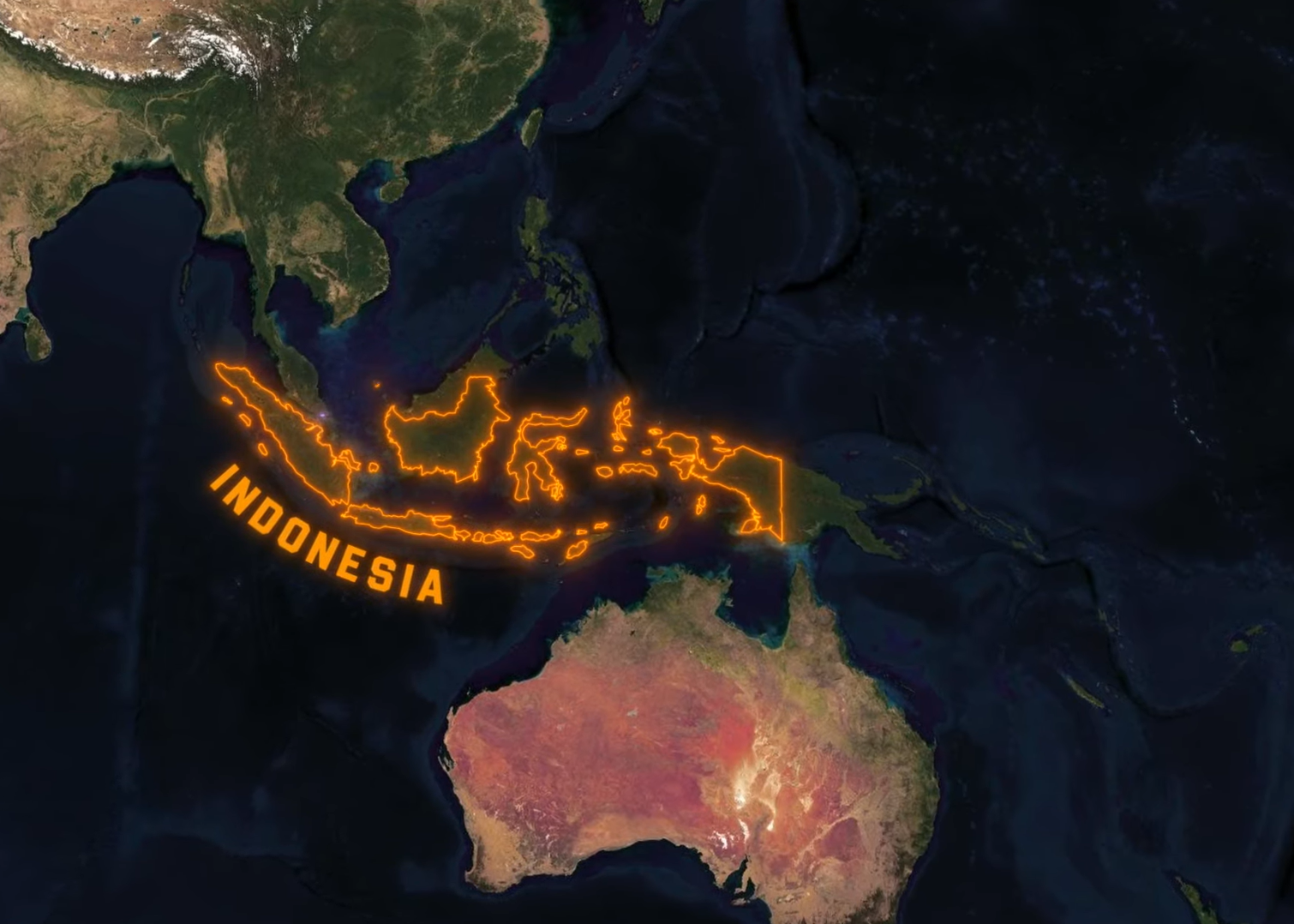As the tides of geopolitical influence flow, a new strategic battleground is emerging around Indonesia. Much like the pivotal nations of Europe during the Cold War era, several countries in Asia find themselves at a crossroads. They are courted by the competing ambitions of the United States and China. Among these nations, Indonesia stands out as the potential fulcrum upon which the balance of power could tilt.
With over 17,000 islands spanning three time zones, Indonesia is the world’s largest archipelagic state, occupying a central position along some of the most critical global maritime trade routes. Its command over chokepoints like the Strait of Malacca, through which nearly half of the world’s trade by tonnage passes annually. Indonesia has immense strategic value in the great power competition unfolding in its backyard.
Indonesia-China Relationship
Beijing, through its ambitious Belt and Road Initiative, has invested heavily in Indonesia, becoming the nation’s primary trading partner since 2013. However, this economic embrace has been tempered by territorial disputes in the South China Sea. China’s expansive “nine-dash line” intersects with Indonesia’s exclusive economic zone near the Natuna Islands causing the conflict. They has responded firmly, bolstering its military presence in the region and conducting extensive drills, signaling its unwavering commitment to territorial integrity.

On the other hand, the United States, having pivoted its strategic focus toward the Indo-Pacific under the Obama administration, has intensified its outreach to Indonesia. Military cooperation, equipment transfers, and joint exercises like the massive Garuda Shield in 2021 have become hallmarks of this renewed partnership. Yet, Indonesia’s leadership is keenly aware of the need to avoid being perceived as a mere pawn in the great power play between Washington and Beijing.
To that end, Indonesia has created its own course. It encapsulated President Joko Widodo’s vision of transforming the nation into a “global maritime fulcrum.” This ambitious policy aims to enhance their maritime culture, economy, and naval capabilities, positioning it as a formidable regional power. However, budgetary constraints have led Jakarta to seek infrastructure funding from China’s Belt and Road Initiative, an ironic reliance on the very power it seeks to counterbalance.
Dependence and Freedom
As the geopolitical chessboard continues to take shape, Indonesia finds itself at the epicenter of great power rivalry, straddling the delicate line between the U.S. and China. Its declared neutrality and willingness to engage with both sides underscore its aspirations for strategic autonomy. Yet, the inherent risk of tilting too far toward either camp, whether through increased economic dependence on China or a perceived military alignment with the U.S., looms large.
Read More:- Iran-Pakistan Relations: A Potential Realignment on Kashmir issue?
In this high-stakes game, Indonesia’s ability to navigate the treacherous waters of great power politics will be put to the test. Its strategic location, abundant natural resources, and ecomic position it as a potential kingmaker in the Indo-Pacific theater. Whether Jakarta can truly maintain its neutrality or will be compelled to make a definitive choice between Washington and Beijing remains an open question – one that could reshape the contours of regional order for decades to come.
Explore anime! Visit Pop Media Pulse
